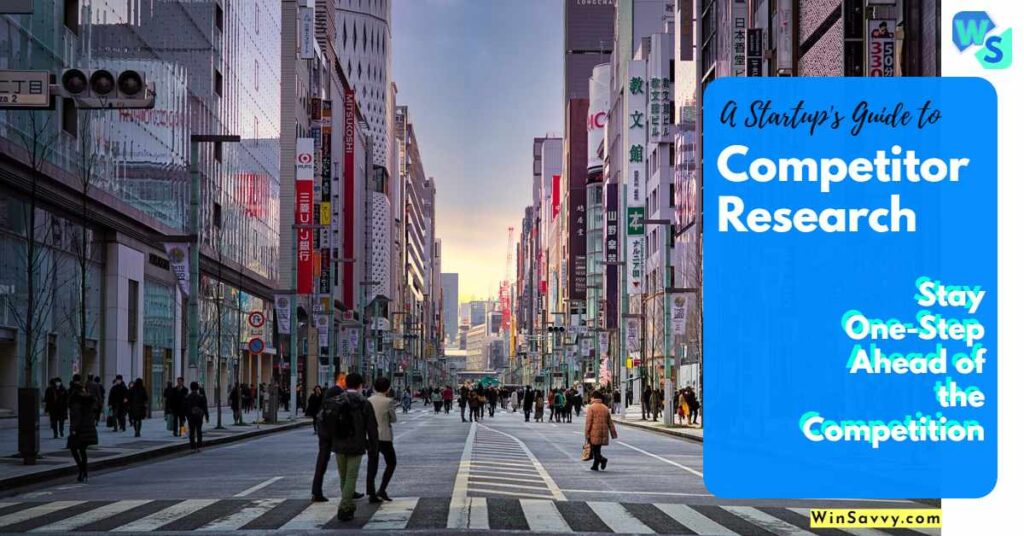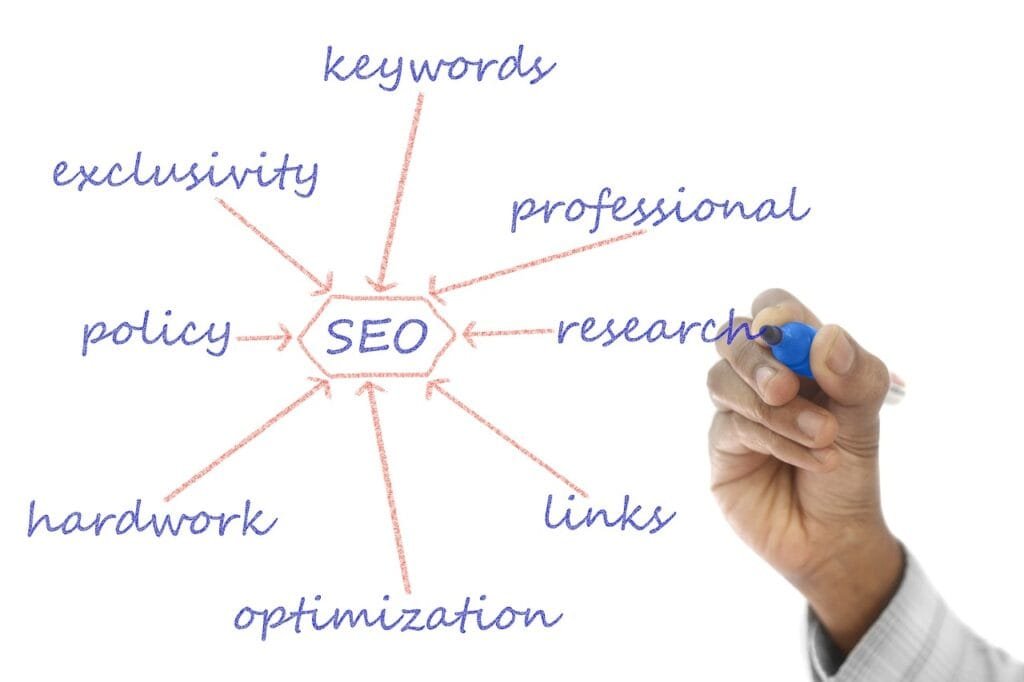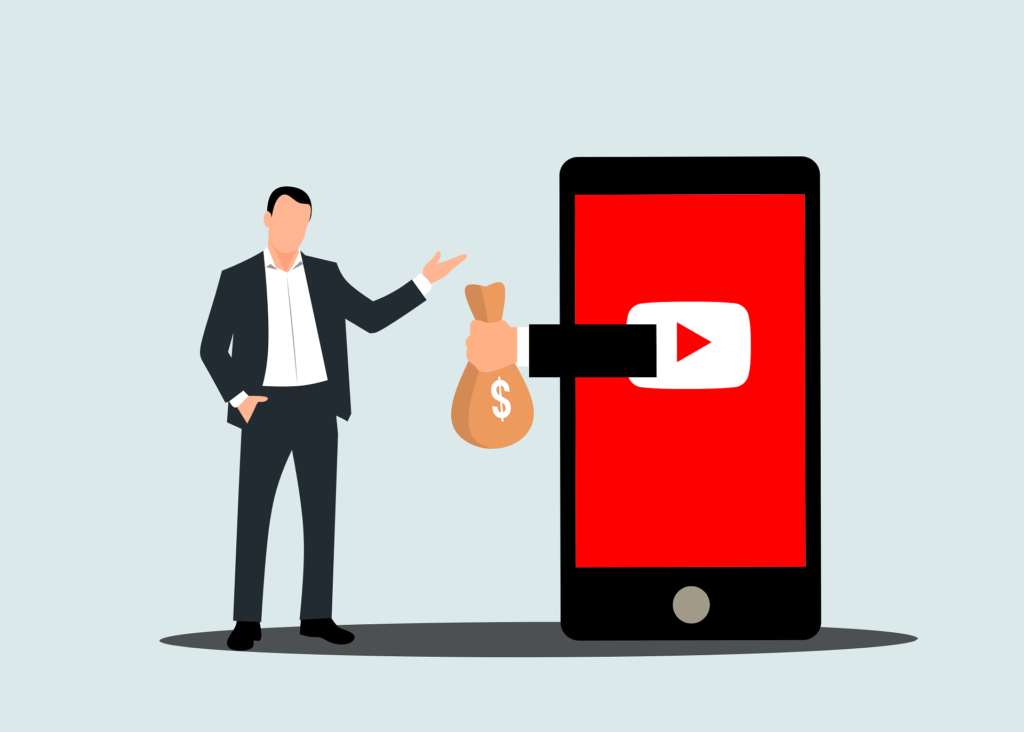Crafting a Hotel Digital Marketing Strategy
A robust digital marketing strategy is essential for hotels aiming to increase bookings and enhance customer loyalty. The first steps in this journey include understanding your target audience and analyzing competitors and market trends.
Understanding Your Target Audience
Developing a successful digital marketing strategy in the hotel and resort industry requires more than simply making a plan and carrying it out. It hinges on truly comprehending the audience, including their specific needs, behavioral patterns, and preferences (Les Roches). Here’s how to start:
- Segmenting Your Audience: Divide your audience into distinct groups based on factors such as demographics, booking behaviors, travel preferences, and interests.
- Creating Buyer Personas: Develop detailed profiles of your ideal guests. Include information like age, gender, income, motivations, and preferred travel experiences.
- Conducting Surveys and Feedback: Gather insights directly from your guests through surveys, feedback forms, and online reviews to understand what they value most.
| Guest Segment | Characteristics | Preferred Channels |
|---|---|---|
| Business Travelers | Age 30-50, mid to high income, frequent travelers | Email, LinkedIn, Business Blogs |
| Leisure Travelers | Age 25-40, mixed income, value for experiences | Instagram, Facebook, Travel Blogs |
| Family Vacationers | Age 35-50, mid-income, family-oriented | Facebook, Pinterest, Family Travel Websites |
For more on this, explore our digital marketing for hotels article.
Analyzing Competitors and Market Trends
Analyzing the target market and competitors is crucial for an internet marketing strategy for a hotel. It paves the way for effective marketing tactics and tailored guest experiences. Here are the key steps:
- Competitor Analysis: Identify your main competitors and evaluate their online presence, marketing efforts, guest reviews, and unique selling propositions.
- Market Trends: Keep up-to-date with industry trends, consumer behavior shifts, and emerging technologies. Utilize resources like industry reports, travel news sites, and market research data.
- SWOT Analysis: Assess your hotel’s strengths, weaknesses, opportunities, and threats compared to those of your competitors. This will help identify areas where you can differentiate your hotel.
| Analysis Aspect | Focus Areas | Resources |
|---|---|---|
| Competitor Analysis | Marketing Strategies, Online Reviews, USPs | Competitor Websites, Review Platforms |
| Market Trends | Industry Trends, Consumer Behavior | Industry Reports, Travel News Sites |
| SWOT Analysis | Strengths, Weaknesses, Opportunities, Threats | Internal Data, Market Research |
For further insights, check out our article on hospitality marketing strategies.
By understanding your target audience and analyzing competitors and market trends, hotel owners and marketing professionals can craft a digital marketing strategy that resonates with guests and stands out in the competitive hospitality market.
Leveraging Social Media for Hotels
Social media is a powerful tool in the arsenal of hotel digital marketing services. By effectively leveraging various social platforms, hotels can increase bookings, build customer loyalty, and enhance their online presence.
Impact of Social Media Platforms
Social media platforms have revolutionized the way hotels interact with potential and existing guests. Seventy-seven percent of U.S. Americans have a social media profile, and platforms like TikTok have become influential in the travel and tourism industry. Sixty percent of travelers report being inspired to visit new destinations after watching a TikTok video about them (Canary Technologies).
Here’s a breakdown of how different social media platforms can impact hotel marketing:
| Platform | Impact |
|---|---|
| Great for sharing updates, promotions, and engaging with a broad audience. Effective for targeted ads. | |
| Visual storytelling through high-quality images and videos. Ideal for showcasing the hotel’s ambiance and guest experiences. | |
| TikTok | Reaches a younger demographic. Short-form videos can quickly go viral and inspire travel. |
| Real-time engagement with guests. Useful for customer service and sharing news. | |
| Professional networking. Useful for B2B relationships, including partnerships and recruiting. |
Strategies for Social Media Engagement
To effectively use social media platforms, hotels should develop strategies that maximize engagement and foster lasting relationships with their audience.
Visual Content is Key
Including images and videos in social media posts leads to increased engagement. Hotels see a 15% increase in conversion rates when they include high-quality photos on their websites (Canary Technologies). Additionally, user-generated content, such as guests sharing their experiences, can be 3.9 times more likely to lead to bookings. Encouraging guests to share their experiences and providing incentives can amplify this effect.
| Content Type | Engagement Rate |
|---|---|
| Images | High |
| Videos | Highest |
| Text | Moderate |
User-Generated Content (UGC)
User-generated content is a powerful way to build trust and authenticity. Hotels should encourage guests to share their photos and videos on social media. This not only provides free advertising but also creates a sense of community. If requested by the hotel, 80% of guests leave a review compared to only 22% doing so unprompted.
Influencer Collaborations
Collaborating with influencers can significantly enhance a hotel’s visibility. Seventy-five percent of travelers say they have been inspired to travel to certain destinations by social media influencers, and 67% of marketers plan to spend more on influencer marketing campaigns in 2023 (Canary Technologies). Partnering with travel influencers who align with the hotel’s brand can attract a wider audience and generate authentic content.
For more detailed strategies on engaging guests via social media, consider checking out social media marketing for restaurants.
Hotels should also regularly highlight their staff, sustainable initiatives, and unique offerings. These practices not only humanize the brand but also attract attention and improve conversion rates (Mews Blog).
By leveraging the impact of social media platforms and implementing effective engagement strategies, hotels can significantly enhance their online presence, driving more traffic to their websites and increasing direct bookings. For more comprehensive insights, visit our section on digital marketing for hotels or learn about collaborating with influencers in the hospitality marketing strategies.
Importance of SEO in Hotel Marketing
Search Engine Optimization (SEO) is a crucial component of any effective hotel digital marketing services strategy. It enhances online visibility and credibility, attracting more potential guests to the hotel’s website.
Benefits of SEO for Hotels
Increased Visibility and Credibility: SEO improves a hotel’s visibility on search engines like Google, making it easier for potential guests to find the property. High rankings not only boost visibility but also build trust and credibility with visitors, as top-ranking websites meeting high-quality standards (StartupNation).
Enhanced User Experience: Proper SEO practices ensure that a hotel’s website is user-friendly and meets the needs of visitors. This includes fast loading times, mobile optimization, and easy navigation. A better user experience not only helps in high rankings but also keeps potential guests engaged and satisfied (StartupNation).
Increased Organic Traffic: High-quality, keyword-optimized content attracts more organic traffic to the hotel’s website. This is crucial for long-term growth as organic visitors are more likely to convert into guests, especially when visiting a site they trust (StartupNation).
Higher Conversion Rates: With better visibility and an enhanced user experience, SEO helps in achieving higher conversion rates. Potential guests are more likely to book a room after finding and being impressed by a well-optimized hotel website.
| Benefit | Impact |
|---|---|
| Increased Visibility | Higher search engine rankings |
| Enhanced Credibility | Builds trust among visitors |
| Better User Experience | Satisfies visitor needs |
| Increased Organic Traffic | Attracts quality visitors |
| Higher Conversion Rates | More bookings and sales |
Implementing On-Page SEO Techniques
On-page SEO focuses on optimizing individual web pages to rank higher and earn more relevant traffic. This involves several critical techniques:
Keyword Optimization: Identify and use relevant keywords strategically within the content, meta tags, headers, and URLs. Targeting specific keywords like “luxury hotel in New York” helps in attracting potential guests searching for similar accommodations.
Content Quality: Create high-quality, informative, and engaging content that resonates with your audience. The content should provide value, answer queries, and entice potential guests to book a stay. High-quality content also includes blogs, travel guides, and guest testimonials.
Meta Tags and Descriptions: Optimize meta titles and descriptions with relevant keywords. These elements appear in search results and play a crucial role in attracting clicks.
ALT Text for Images: Use descriptive ALT text for all images on your site. This not only helps in better rankings but also improves accessibility.
Mobile Optimization: Ensure your website is mobile-friendly. With the growing number of mobile searches, a responsive design boosts user experience and rankings. Explore more about mobile marketing for restaurants.
Internal Linking: Incorporate internal links within your content to guide visitors to other valuable pages on your website. Internal links help search engines understand the structure of your site. Check out our section on hospitality marketing strategies for more insights.
Implementing these on-page SEO techniques can significantly improve your hotel’s online presence and attract more potential guests. For more detailed strategies and professional assistance, consider consulting a hospitality marketing agency to revolutionize your digital marketing efforts. Explore further details about digital marketing for hotels to broaden your knowledge on effective strategies.
Email Marketing for Hotels
Email marketing is a vital component of hotel digital marketing services. It allows hotels to directly engage with customers, drive repeat business, and cultivate loyalty. This section explores how to build a targeted email list and leverage email campaigns for enhanced customer engagement.
Building a Targeted Email List
Creating a comprehensive and focused email list is fundamental to the success of an email marketing strategy in the hospitality sector. An effective list ensures that marketing messages reach individuals who are genuinely interested in the hotel’s offerings.
Strategies for Building an Email List
- Website Sign-Ups: Integrate sign-up forms on your hotel website, offering incentives like exclusive discounts or newsletters.
- Booking Process: Collect emails during the booking process, ensuring to get consent.
- Social Media: Promote email sign-ups on social media marketing for restaurants pages, offering followers special deals for subscribing.
- Events and Partnerships: Collect emails during events or through partnerships with local businesses.
Leveraging Email Campaigns for Customer Engagement
Once a targeted email list is established, the next step is to craft compelling email campaigns that engage customers and drive bookings.
Types of Email Campaigns
- Promotional Emails: Highlight special offers, discounts, and packages. Include clear calls-to-action to encourage bookings.
- Transactional Emails: Automate confirmations, reminders, and thank-you notes after interactions such as bookings, inquiries, or stays.
- Content-Rich Newsletters: Share valuable content like travel tips, local events, and updates about hotel services or amenities.
- Loyalty Programs: Inform loyal customers about exclusive rewards and incentives.
Performance Metrics
Monitoring the effectiveness of email campaigns is crucial. Utilize tools like Google Analytics to track metrics such as open rates, click-through rates, and conversion rates. This data can provide insights into customer preferences and help refine future campaigns.
| Metric | Description | Ideal Value |
|---|---|---|
| Open Rate | Percentage of recipients who open the email | 20-30% |
| Click-Through Rate | Percentage clicking on links within the email | 2-5% |
| Conversion Rate | Percentage who complete the desired action | 1-3% |
Figures courtesy SiteMinder
Benefits of Effective Email Campaigns
- High ROI: Hotel email marketing generates $38 for every $1 spent, indicating a significant return on investment (SiteMinder).
- Influence on Decisions: More than half of a sample population stated that marketing emails influence their purchase decisions.
- Customer Loyalty: Regular communication through well-crafted emails helps in building a loyal customer base, encouraging repeat visits.
For further details on enhancing your digital marketing efforts, particularly in managing online reviews, visit online reputation management for hotels.
Managing Online Reputation
In the highly competitive hospitality sector, managing online reputation is essential to the success of any hotel. Understanding the significance of online reviews and knowing how to handle them effectively can significantly influence a hotel’s image, bookings, and overall success.
Importance of Online Reviews
Online reviews are paramount in digital marketing for hotels. Over 8 out of 10 people frequently read reviews before booking a place to stay, and more than half would never book a hotel without reviews (SiteMinder). Positive reviews contribute to increased bookings, higher occupancy rates, and greater revenue per available room.
Impact of Reviews on Hotel Bookings:
| Aspect | Impact Percentage |
|---|---|
| Read reviews before booking | 80% |
| Will not book without reviews | 50% |
| Book due to good reviews | 70% |
Source: SiteMinder
Online reviews are often the first point of contact potential guests have with a hotel. Good reviews not only reassure potential customers about the quality and reliability of a hotel but also improve a hotel’s ranking on search engines, making it more visible to new guests.
Strategies for Handling Positive and Negative Reviews
Effectively managing both positive and negative reviews is crucial. Encouraging satisfied guests to leave positive reviews can significantly enhance a hotel’s online reputation. At the same time, addressing negative feedback promptly and professionally can mitigate potential damage.
Handling Positive Reviews:
- Acknowledge and Express Gratitude: Thank guests for their positive feedback and mention specific aspects they have praised.
- Personalize Responses: Reference specific details of their stay to show that the review was read thoroughly.
- Encourage Return Visits: Use positive reviews as an opportunity to invite guests back and offer them incentives.
Example response:
“Thank you for your kind words! We’re delighted to hear that you enjoyed our ocean-view suites and our gourmet breakfast. We look forward to welcoming you back soon!”
Handling Negative Reviews:
- Respond Promptly: Address negative reviews quickly to show that the hotel values guest feedback.
- Stay Professional: Keep responses polite and professional, regardless of the nature of the complaint.
- Acknowledge the Issue: Validate the guest’s concerns and outline the steps taken to address the problem.
- Offer Solutions: Provide specific solutions or compensation where appropriate.
Example response:
“We apologize for the inconvenience you experienced during your stay. We have addressed the issue with our housekeeping team to ensure it does not happen again. Please contact our management team to discuss how we can make this right.”
By systematically managing online reviews, hotels can maintain a positive image and build trust with potential guests. For more in-depth strategies, visit our article on online reputation management for hotels.
In conclusion, actively managing and responding to online reviews can significantly enhance a hotel’s reputation, ultimately leading to increased bookings and guest loyalty. For additional insights into hospitality marketing strategies, explore our resources on hospitality marketing strategies and hospitality marketing agency services.
Maximizing Digital Advertising
To revolutionize a hotel’s online presence, digital advertising plays a crucial role. Particularly, hotel digital marketing services enable more precise targeting and increased visibility, which can significantly boost bookings and customer loyalty.
Role of PPC Campaigns
Paid advertising, especially Pay-Per-Click (PPC) campaigns, is integral to an effective hospitality marketing strategy. PPC campaigns allow hotels to appear prominently in search engine results pages (SERPs) when potential guests are actively searching for accommodations. Tailoring PPC campaigns for specific keywords and demographics enables hotels to target their ideal guests with precision (Bullseye Strategy).
Benefits of PPC for Hotels:
- Immediate Visibility: PPC ads appear at the top of SERPs, ensuring instant visibility.
- Precise Targeting: Hotels can target specific demographics, locations, and even behaviors.
- Flexible Budgeting: PPC campaigns can be adjusted based on budget and performance metrics.
- Measurable ROI: Results and conversions can be tracked to measure the effectiveness of the campaigns.
| PPC Metric | Benefits |
|---|---|
| Click-Through Rate (CTR) | Measures how compelling the ad is |
| Conversion Rate | Indicates the number of bookings made |
| Cost Per Click (CPC) | Helps optimize budget allocation |
| Return on Ad Spend (ROAS) | Assesses profitability of campaigns |
For more insights on hospitality marketing strategies and how PPC can be a game-changer, consider exploring our related content.
Implementing Retargeting Strategies
Retargeting is a powerful digital marketing tool, especially for hotels. It involves displaying ads to users who have previously visited the hotel’s website but did not complete a booking (Bullseye Strategy). By keeping the hotel top-of-mind, retargeting can significantly enhance conversion rates.
Key Advantages of Retargeting:
- Increased Brand Recall: Keeps potential guests engaged and reminds them of the hotel.
- Improved Conversion Rates: Encourages potential guests to complete their booking.
- Enhanced Personalization: Offers tailored messages based on users’ previous interactions.
- Efficient Budget Use: Targets warm leads, often resulting in a better return on investment.
| Retargeting Metric | Benefits |
|---|---|
| Impressions | Tracks how often ads are seen |
| Click-Through Rate (CTR) | Measures engagement consistency |
| Conversion Rate | Indicates successful retargeting |
| Cost Per Acquisition (CPA) | Helps evaluate the cost-effectiveness of campaigns |
For more details on managing your online presence and keeping potential guests engaged, check out our article on online reputation management for hotels.
By integrating PPC and retargeting strategies, hotels can maximize their digital advertising efforts, driving higher engagement and boosting bookings. Explore the expansive hospitality marketing services for comprehensive solutions and elevate your hotel’s online presence effectively.
Enhancing User Experience
In the competitive hospitality industry, optimizing user experience on hotel websites is crucial for attracting and retaining guests. Two key strategies to achieve this are mobile optimization and implementing unique value propositions. These strategies ensure that hotels stand out in the crowded market and provide an exceptional experience for their visitors.
Mobile Optimization for Hotel Websites
With a significant portion of internet users accessing websites via mobile devices, ensuring that your hotel’s website is mobile-friendly is paramount. A mobile-optimized website enhances user experience by making navigation seamless and reducing load times, which are crucial for keeping potential guests engaged.
| Device | Percentage of Users Accessing Hotel Websites |
|---|---|
| Mobile | 60% |
| Desktop | 30% |
| Tablet | 10% |
Data highlights the importance of catering to mobile users. Hotels that prioritize mobile optimization can capture a larger share of this market, potentially increasing bookings and customer satisfaction.
Key elements of mobile optimization include:
- Responsive Design: Ensures the website adapts to various screen sizes.
- Fast Loading Times: Reduces bounce rates and keeps users engaged.
- Easy Navigation: Simplifies finding information and making reservations.
- Click-to-Call Buttons: Enhances direct communication with potential guests.
For more insights into mobile marketing strategies, visit our article on mobile marketing for restaurants.
Implementing Unique Value Propositions
A unique value proposition (UVP) sets your hotel apart from competitors by highlighting what makes your establishment special. Communicating this differentiation effectively can attract more guests and build brand loyalty.
Elements of a compelling UVP include:
- Distinct Amenities: Highlight features such as spa services, gourmet dining, or unique architectural elements.
- Exclusive Offers: Provide members-only discounts, loyalty programs, or special packages.
- Local Experiences: Emphasize proximity to local attractions or unique experiences that guests can enjoy.
For instance, a hotel might emphasize its eco-friendly practices, such as sustainability initiatives and eco-tours, as part of its UVP. This strategy can appeal to environmentally-conscious travelers and position the hotel as a responsible and appealing choice.
| Unique Value Proposition Element | Example |
|---|---|
| Distinct Amenities | Rooftop Infinity Pool |
| Exclusive Offers | Members-Only Discounts |
| Local Experiences | Guided Cultural Tours |
Implementing a strong UVP clearly on your website can enhance the perceived value of staying at your hotel. It’s crucial to communicate these unique elements consistently across all marketing channels.
For additional hospitality marketing strategies, read our detailed guide on hospitality marketing strategies.
By focusing on mobile optimization and unique value propositions, hotels can significantly enhance their online presence and user experience, leading to increased bookings and customer loyalty. For more strategies on improving your hotel’s digital presence, explore our resources on digital marketing for hotels and SEO for the hospitality industry.
Utilizing Influencers and Partnerships
In the hotel industry, collaborating with influencers and forming strategic partnerships can significantly bolster a hotel’s online presence and increase bookings and customer loyalty.
Impact of Collaborating with Influencers
Collaborating with influencers has become a powerful strategy in the realm of hotel digital marketing services. Social media influencers, particularly those on Instagram, TikTok, and YouTube, hold substantial sway over travel and accommodation decisions. Seventy-seven percent of Americans have a social media profile, and platforms like TikTok have a remarkable impact on travel and tourism, with sixty percent of travelers saying they have been inspired to visit a new destination after watching a TikTok video about it (Canary Technologies).
Influencers provide authentic content that resonates with their followers, making their recommendations highly valuable. Hotels can leverage this by inviting influencers to experience their property in exchange for social media coverage, which can include:
- Instagram Stories/Posts
- TikTok Videos
- YouTube Vlogs
These collaborations often result in increased engagement, website traffic, and, ultimately, bookings. Hotels observing this strategy have reported a 15% increase in conversion rates when featuring high-quality photos and videos on their websites.
Forming Strategic Partnerships
Forming strategic partnerships within the travel industry can also enhance a hotel’s marketing efforts. These partnerships may include collaborations with:
- Travel Agencies: Integrating services and offering exclusive deals.
- Local Businesses: Partnering with local attractions, restaurants, and shops to create package deals.
- Tour Operators: Offering mutually beneficial packages that combine hotel stays with tours and other activities.
Partnerships help in cross-promoting services and expanding the hotel’s reach to different audiences.
| Partnership Type | Potential Benefits |
|---|---|
| Travel Agencies | Increased bookings through exclusive deals |
| Local Businesses | Enhanced guest experience with package deals |
| Tour Operators | Broadened reach with combined hotel and activity offers |
These strategic alliances can also improve brand visibility and credibility, as partnerships often signify a level of trust and quality.
By utilizing influencers and forming strategic partnerships, hotels can effectively increase their online presence and drive more direct bookings. For more insights into harnessing digital strategies, explore our related resources on social media marketing for restaurants and hospitality marketing strategies.





















